¤ An anthem of Hungarian Beas Roma ⇓ ‘ Zöld az erdő’←
- The wood is green, so is the hill.
- Luck comes and goes.
- The knife of worries cuts into our flesh,
- The world has gone hypocrite.
- The whole world is our enemy,
- We live as chased thieves.
- We didn’t steal anything but a nail
- From the bleeding palm of Jesus.
- God, have mercy on us,
- Let our people no longer suffer.
- You cursed us, you beat us,
- You made us eternal wanderers.
-
Zöld az erdő, zöld a hegy is
A szerencse jön is, megy is
Gondok kése husunkba vág
Képmutató lett a világEgész világ ellenségünk
Űzött tolvajokként élünk
Nem loptunk mi csak egy szöget
Jézus vérző tenyerébőlIsten, könyörülj meg nékünk
Ne szenvedjen tovább népünk
Megátkoztál, meg is vertél
Örök csavargóvá tettél
≈
One of the most commonly used Romani loan words in English is “pal”—a fraternal takeaway reflecting the solidarity that binds a wandering people. A powerful byproduct of that solidarity is music that breaches social barriers the Roma themselves have often been unable to penetrate. They planted flamenco in Spain and gave manouche jazz to France; further east, the Roma sound is routinely viewed as synonymous with Hungarian music ⇓ -[Alan Tigay]
– Nais tuke ♥
Most of the Hungarian music familiar today has its roots in the![]() eighteenth century when the country rebuilt itself as part of the Hapsburg Empire. ‘New style’ music appeared, with a regular metric structure for dancing and marching, while solo bagpipers were replaced by the new Gypsy orchestras, and the medieval-style drone accompaniment gave way to the central European harmony of the string bands.
eighteenth century when the country rebuilt itself as part of the Hapsburg Empire. ‘New style’ music appeared, with a regular metric structure for dancing and marching, while solo bagpipers were replaced by the new Gypsy orchestras, and the medieval-style drone accompaniment gave way to the central European harmony of the string bands.
The music of the Roma themselves hardly uses instruments at all. In addition to their urban style music, there’s a contrasting rural variety played by the Vlach (or Olah) Gypsies. This music is traditionally accompanied by rhythmic grunts, the tapping of ![]() domestic utensils like spoons and water cans and imitations of instruments in a ‘doobie-doobie-doobie’ sort of way called ‘oral-bassing’. It oscillates between tragic songs about the hardships of Gypsy life and wild, upbeat numbers throwing all cares to the wind.
domestic utensils like spoons and water cans and imitations of instruments in a ‘doobie-doobie-doobie’ sort of way called ‘oral-bassing’. It oscillates between tragic songs about the hardships of Gypsy life and wild, upbeat numbers throwing all cares to the wind.
∇ Balogh Kálmán Gipsy Cimbalom Band ⇓ Dunáról _ («From Danube») [2010]
¤ Kálmán Balogh, a graduate of Ferenc Liszt Academy of Music of Budapest, is one of the foremost Hungarian cimbalom players, descending from a famous dynasty of Hungarian Gipsy musicians. His virtuosity is matched only by his understanding and respect of his heritage.
The cimbalom, a sort of oversized hammer dulcimer played with mallets like a vibraphone, possesses piano-like percussive abilities to drive a band rhythmically or take the melodic lead.
◊ → Titi Winterstein Quintet [1956-2008] ⇓ ‘Milko’
«Bad people don’t sing.» – Rom Proverb
÷ ÷ ÷ ∇ ÷ ÷ ÷
Romano Drom reflects the tradition and the modernity of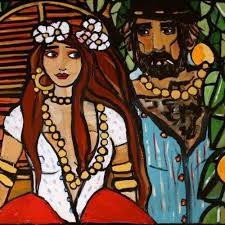 the Oláh gipsy music: a unique fusion of the ancient songs played still in rural gipsy areas, and the popular songs played in the big cities, mixed with other country’s music. The band’s music is characterized by an energy and heartfelt integrity all its own, as they continue to build bridges between their down-trodden ancestry and contemporary music.
the Oláh gipsy music: a unique fusion of the ancient songs played still in rural gipsy areas, and the popular songs played in the big cities, mixed with other country’s music. The band’s music is characterized by an energy and heartfelt integrity all its own, as they continue to build bridges between their down-trodden ancestry and contemporary music.
The power of their music is in the voices and vocal games as well as the use of their Romani mother tongue. Hungarian folk music is renowned for its vocal games, and central to the band’s sound is the traditional method of vocal jousts and interplay with rolling onomatopoeic sounds called “szájbögözés” and “pergetés”.
The basic Olah gipsy songs are arranged by Antal Kovács “Gojma” [1940-2005] who founded Romano Drom along with his son, guitarist and singer Antal Kovács Jr. (a.k.a. Anti), just after splitting from Ando Drom in 1999. Luckily, the youngest family member, Krisztián Kovács inherited the sense of rhythm and talent for dance of his grandfather’s, Máté Kovács is an up to date drummer, János Egri is a world famous contrabassist from the world of jazz. József Balogh “Jocó” joined the band after the first album release, co-author of Anti’s, bringing the authentic sound which completes Anti’s big city inspirations.
•→ ‘Ustyi Tété’ ⇐[2016] . . . ⇑
♥ Romano Drom ⇓ ‘Rovel e luludyi’ ←
Wherever you go, flowers are spreading on your road ‘cause you’re the queen, my little flower
When I look at you, my heart is delighted at your beauty, I thank God to have met you…
Karig phires karig na – ande tyo drom sa luludya bariona
ke tu san lengi rai – muri cini luludyori
Kanak petute dikhav – muro ilo loshala ke shukar san
ke naisarav le Devleske – kai tusa maladyilem
Tusa me te nashtig trajino – atunchi muro ilo shindiol …
Rovel muri luludyi – lako cherhai na pekel po cheri
po cheri kanak dikhel – lake yakha yay asvarel
Ande ratyi kanak djav – sa petute gindyinavme shei
ke tu san muri rakli – muri shukar piramni
Tu san mange o baripo – ande muro choro ilo
shei me tut kamav …
¤ Romano Drom ⇒ ‘Szatale Zsav’ ⇐
∇ ‘But Te Trajisz’ ⇓ [‘May You Live Long’_2019]
 – English Translation (from the Romani lyrics):
– English Translation (from the Romani lyrics):
When you were young, there were none more beautiful than you
Now your hair has turned grey, you are getting on in years nicely
You have raised your children
Children are adults now, may find your joy in them!
May they take care of you and may you live long beside them
In great tranquility
⇐ (AMB Remix)
⇔ ‘Lina’
¤ → LE ROM ⇐
The Oláh Gipsy Beats ⇑ project was brought to life by Antal Kovács (‘Anti’), leader of Romano Drom. It was founded in 2008, as from the three most famous vlach gipsy band leaders from Hungary joined Romano Drom, under the name Oláh Gipsy Allstars. It is known under it’s current name from 2011 with the same singers: Antal Kovács (Romano Drom), István Szilvási (Szilvási Gipsy Folk Band), Béla Lakatos (Ternipe), Matild Dobi (Ando Drom), István Farkas (Ternipe), József Balog (Romano Drom), and Gabriella Tintér.
÷ ÷ ÷ ÷ ÷
⇐ A Roma music ensemble from Budapest in Hungary, founded in 1984 by the multi-instrumentalist and vocalist Jeno Zsigó. ‘Ando Drom’ (Romani for «on the road» ) is also the name of a foundation established by Jeno himself that works in close collaboration with the Roma parliament for the preservation of the culture and identity of the Roma in Hungary.
Jeno Zsigó was initially a social worker in the Roma settlements of Budapest and headed a children’s chorus and dance troupe at the beginning of the 1980s with which he regularly toured throughout Hungary. The group were always hugely popular and following an extraordinarily successful performance at a festival in 1984, he decided to form the Ando Drom ensemble.
The members of the ensemble come from various social strata in Hungarian society and reflect the different Roma traditions existing in the country. From 1995 to 2003, Mónika Juhász Miczura, a.k.a. ‘Mitsou’, sang for the band: her unique and very expressive way of singing significantly defined the ensemble, contributing greatly to its international renown.
Ando Drom has served as a springboard for many musicians who then followed their own projects, such as Mitsou (a.k.a. Mitsoura), the founders of Romano Drom, Romano Glaso, Lindri, Rom Som, Romengo and The Szilvási Gypsy Folk Band.
• Ando Drom: → ‘Phari Mamo’ ⇐(‘It’s hard mother’)
Phari Mamo e hajova – Nashtig phendav avri
Dukhal mamo muro jilo – Taj chi zhanav sostar
Zhutin devla mura deja – Na mukhte xasajve
But si apoj le shavora – Naj kon bararelen
∇ Ando Drom ⇓ ‘Sza Tele Zsav’
Sza tele zsáv le dromeszá, te reszámán lé phráleszá.
Té reszámán le phráleszá, kodolészá lé csácseszá.
Hájdi phrálá, pe kércsimá, te páv egy felyá retyija,
Ó ke hájdi phrálá pe kércsimá, te páv prhálá tuszá ába.
Jeftá phrál, jeftá sógori, numá mé silyom korkori,
numá me silyom korkori, o csoro de o de Láji.
Zsáv me ápoly káring khere, zsáv me ápoly káring khere,
ke náj abá káring te zsáv, náj abá de szote kérav.
Muri cipe káki dóri, phrálá muro sudro gyóri,
káná o khám ná pékélá, csi amenge misto návelá.
Álé devlám szote keráv, muro soro kájté suváv,
suváv lész mé legindonge, zsávtár mange lá lumake.
Zsávtár mange lá lumake…roma
◊→ Ando Drom ⇓ ‘Keren Chave’ ←
∇ ‘Kanak Szomasz’ ⇓
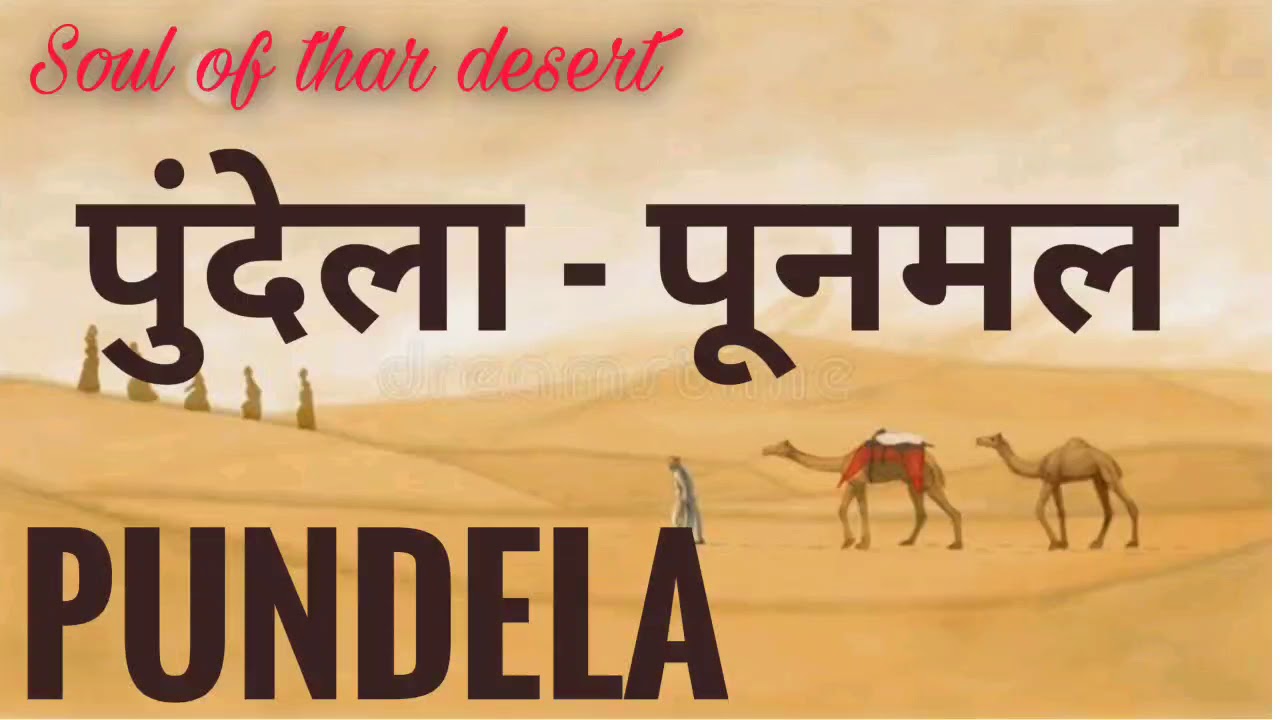
Ek Pundole ri jure, nire bilalan re jure, nire pundole ri mata, nire Bhanwar sa ri mata riiiii
El Pundole ri aave, nire bilale lari aave, nire pundole ri odhu, nire Bhanwar sa ri odhu riiii
Ek Pundulo barjo, nire bilal lar barjo, nire pundele ri odhu, nire Bhanwar sa ri odhu ri
Ek Pundulo giyo, nire bila lar giyo, nire pundulo pardesa mat ja re, Bhanwar sa pardesa mat jaa
El Pundulo patha, ro re bhanwar sa patha, ro punire pachisa, ro bilalo pachisaaaa . . .
Ra ram re ree la la re ree eeeeeee…

«There are such things as false truths and honest lies.»
– [Rom Proverb]
÷ ÷ ÷ ÷ ÷ ÷
Mónika Juhász Miczura stuck with Ando Drom for eight years. In the 2000s, Mitsoura became one the best Hungarian ethno-electronic bands, famous for its search for a unique and unusually complex sound – a sound that was used by director Tony Gatlif in the soundtrack of ‘Gadjo dilo’, and blatantly sampled by Beyoncé in ‘Drunk in Love’ without credit or permission: a recurring section of the song is a “digitally manipulated” excerpt from the track Bajba, Bajba Pelém, which Mitsou recorded with Ando Drom in 1995.
After a seven year hiatus, the legendary Monika ‘Mitsou’ Miczura, one of the most respected voices of Rom music, and Mark Moldvai, the other historical bulwark of the group, got back together, and joined forces with exceptional musicians such as Andras Jeli, Barna Gabos and Sandor Fodo. Together, they have revisited traditional Rom and authentic folk music by mixing it with a collage of 21st century electro cinematic sounds, sweeping the audience off their feet with breath-taking visual effects.
♦→ Mitsoura ⇓ ‘Kelushka’ ←
Shukar san shukar keles – Pala mande tu meres
Tigda da da da shukar sa kiri iaca …
… Hei na na na me mamo pa la la
Hei mamo da ciumidau me che ushtea …
. . . Che romie belgali – Ma che tuche mai bari
Tigdadada da shukar sa kiri iaca …
… Hei na na na me mamo pa la la
Hei mamo da ciumidau me che ushtea …
Shukar san shukar keles – Pala mande tu meres
Tigdalalala shukar sa kiri iaca …
… Hei na na na mer mamo pa la la
Hei mamo da ciumidau me che ushta …
•→ ‘Devat Ku’ ⇐[2013]
♦ Mitsoura ⇓ ‘Lei Toi’ ←
♦ Mitsoura ⇓ ‘Tutti frutti
Tutti frutti te khelas, Te khelas te gil’abas.
Te khelas te gil’abas, Le romensa te mangas…
… Či žanav so te kerav, Palo late me merav!!!
… Sa o roma, daje, khelena, Sa o roma, daje, pilena!!!
… Či žanav so te kerav, Palo late me merav!!!
With tutti frutti soft drink, we’re dancing and singing
and living it up we’ll smash the bottles.
I don’t know what I can do, for her I’d die…
All the Roma, mother, are dancing – All the Roma, mother, are drinking …
÷ ÷ ÷ ∇ ÷ ÷ ÷
Parno Graszt means ‘White Horse’. ⇑ ‘White’ stands for purity and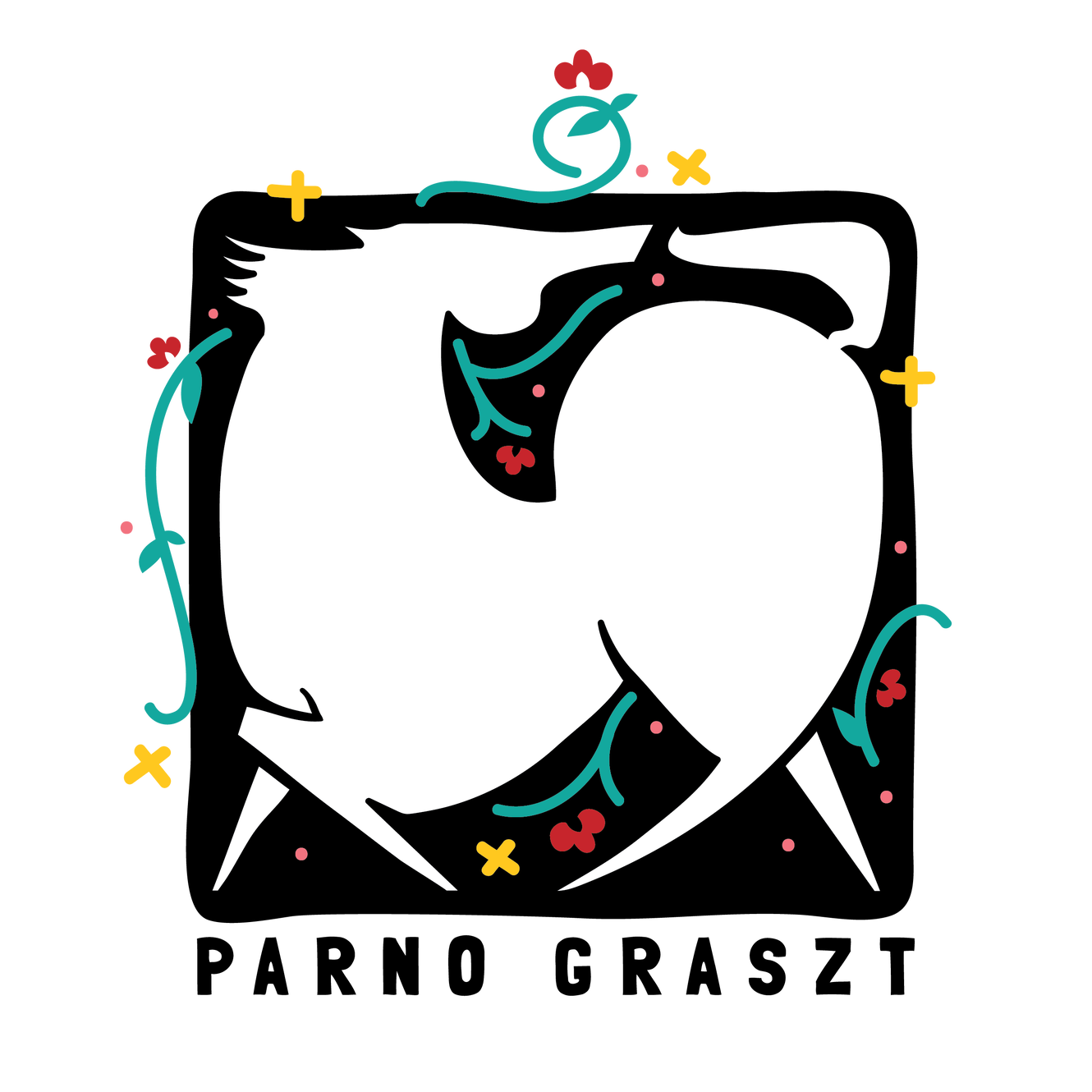 ‘Horse’ is a symbol for Freedom. The band, led by József Oláh, was formed in 1987 in Szabolcs-Szatmár-Bereg, a most under-developed area in Northeastern Hungary.
‘Horse’ is a symbol for Freedom. The band, led by József Oláh, was formed in 1987 in Szabolcs-Szatmár-Bereg, a most under-developed area in Northeastern Hungary.
Parno Graszt sing both in Hungarian and Romani, sometimes alternating between the two in the same song. Their roots can be found in their immediate environment, many melodies were collected by members just around their home village, Paszab. That is where members chose to stay, and they never moved to a city with its fads and stress. They’ve succeeded in preserving the lively, authentic sound of living folk music, and these musicians, too, have remained friendly, direct and in all respects much like village musicians of old.
◊ Parno Graszt ⇓ ‘Cáde shucár’ ←
*’Te merav’ = «May I die [if I’m not telling the truth.]»… It’s fine for the Roma when they dance – They do good for the old and the youngThe way they look is so beautiful it makes me cry,
May I not exaggerate, I swear to God…*
Feder kamav le romencza vóya te kerav
Le chejange, le chavenge dhyli te phenav!
Káde shukáres Te khelen le romenge vóya keren
le romange vóya keren Te mérav!
Mishtoy aba le romenge, Canac von khelen
Le phúrenge, le ternenge, Lashipe_keren!
Sar dikóle Cáde rovav, na butárav me te mérav *
Na butérav, me te mérav, dévlate!
◊→ ‘Annyit ittam bánatomban’ ⇓ (‘Drunk of Sorrow’)
I drank so much in my sorrow – The pálinka flamed up within me,
I drink and drink in my sorrow – Let the gypsy songs play!
Annyit ittam bánatomban,
Meggyúlt bennem a pálinka.
Iszom-iszom bánatomban,
Hadd szóljon a cigánynóta!
◊→ ‘Sehol sem találak’ ⇓ [«Can’t find it anywhere»_Quimby]
∇ ‘Majdik aba szokero’ ⇓ («It’ll be easy»)
Majdik aba sokero, majdik aba mekhero
majdik aba mekhero te no csacsi popeno,
aj devlale mange, mange temero,
mulatine mange, devla temero
∇ Parno Graszt ⇓ ‘Botoló’
Áll a kapun, de áll a trázsa
Mély a kapunak vágása
Azt fogadtad, hogy elveszel
Ha beszántol, ha bevetel
Beszántottál, bevetettél
Még azóta rám se néztél
Mer a szíved olyan csalfa
Ígérgeti jobbra-balra
•→ ‘Muro Kiki’ ⇐
◊→ ‘Rávágok a Zongorára’ ⇓ (‘Hit the piano’)
If i go into the pub, I hit the piano
The organ whispers that Gézu’s mother has escaped
Hey gipsies, welcome!
Ha bemegyek a kocsmába
Rávágok a zongorára
Az orgona azt susogja
Elszökött a Gézu anyja
Hej romale, shavale . . .
÷ ÷ ÷ ÷ ÷ ÷
The name Rományi Rota ⇑ means ‘Gipsy Wheel’ (Cigánykerék). The band was established in 1985 in Nagyecsed (Szatmár county) by young talented Oláh Gipsy musicians.
They first functioned as a large dance group in Nagyecsed, Hungary, the village where the country’s Roma dance and music movement started in the 1970s, gathering many awards for their musical performances.
Eventually Rományi Rota moved to Budapest in 1989, where they continued as a smaller band, collecting & performing authentic Roma music from across Hungary and neighboring countries.
⊗ Rományi Rota ⇓ ‘Puter gayzhe’
Tay Puter gayzhe thy capuva, te cerav me thyri vóya!
Terni gayzhe av tu khate dikh’ta so me andhyom tuce!
Tay andhyom tuce dúye khúren shukare tay sáne khúren
Pe gazhengui bári bríga tay pe thyri shucar vóya
Tay shuv pe lende thyo sérsamo tradav lencza ando fóro
Tay le grasten bicinav me le love cade rodav me!
Tay zhutindas’ man o Délóro Khote pe grastengo foro
So me cerdhyom mishto cerdhyom tuke gayzhe lóve andhyom
Tay a le romnhy av tu khate besh aba tele pash’ mande
besh aba tele pash’ mande thyri vorba phen tu mange
Tay tu te phenes lashi vorba cáde ceres mange voyá
Muri czinni terni gayzhi t’aves sasti tay bhactáli
⊗ Rományi Rota ⇓ ‘Czerhariko shávo’
⊗ Rományi Rota ⇓ ‘Diri, Diri, So Kerdjan?’ ⇐
“My wife was beautiful, I killed her, so she wouldn’t be unfaithful. Oh dear God, I am so sorry for what I have done to my wife. Hey Gipsies, hey boys, tell me how this could have happened?Haj tu Diri Diri Diri Diri so kerdjan,
čhorra romnya, čhorra romnya mudardjan?
“Naslyi voj laši, ke na čumidjasman, avresa voj gilyastar.”
Haj tu Diri Diri Diri Diri Diri,
čhorra romnya, mudardjan, e šukara.
“Muri romnyi sas aba šukar, mudardjomla, te na žal mandar.
Devla, Devla, bunyinav aba, jaj te merav, so me kerdjom murra romnyasa.
Haj romale, haj šavale, šunen aba so pecisajlem?”
⊗ Rományi Rota ⇓ ‘Báro drom szász’
It was a long road ahead of me, ⇐ [English translation]
I was in Romania. I met the boys, oh my God!
The boys I met, My mood I did. My mood I did, oh my God,
I drank up all my money!
Baro drom sas angla mande,
Romania somas mange.
Maladyilem le shavenca, jaj Devla!
Le shavenca matyilem,
muri voja me kerdem.
Muri voja me kerdem, jaj Devla,
Mure love sa pilem!
Jaj Devla, jaj Devla, jaj oh de Fani,
Jaj oh de Fani!
⊗ Rományi Rota ⇓ ‘Korkore Zav Ande Kalyi Ratyi’
«We are all wanderers on this earth. Our hearts are full of wonder, and our souls are deep with dreams.» [Rom Proverb]
÷ ÷ ÷ ∇ ÷ ÷ ÷
Kalyi Jag (Romani for «Black Fire») is a Hungarian Romani folkmusic group founded in Budapest by Vlach Roma members from the Szatmár county, with roots in the Táncház movement.
Kalyi Jag was formed back in 1978 by young workers, most from Nagyecsed, with the aim of refreshing and spreading the songs and dances of their birthplace.
Their music is based on traditional Romani music, primarily Vlach Roma music, with some modernization in the interpretations and the inclusion of such instruments as the guitar and the mandolin. Unlike other Hungarian bands which kept transforming and regrouping, Kalyi Jag kept the same line-up for over twenty years under the leadership of Gusztav Varga.
•→ Újra szól a Gipsy Zene ⇐(‘The Gypsy Music Is Played Again’)
◊→ ‘O Csacso Kamipo’ ⇓ (←lyrics -«The Whole Hearted Love»)
◊→ Kalyi Jag ↓ ‘Mori Shej, Szábiná’ ←(‘My daughter Sabina’ ⇔ lullaby)
You are only just one-year-old – Little, tiny dear daughter You are chattering to me – Ay daughter, my dear tiny baby, Alalala….. I’ll buy some gold jewels for you – Dear tiny daughter All the gold jewels in the world – Ay daughter, my dear tiny baby, Alalala….. God bless my daughter – My tiny baby . . . My beautiful Sabina Buter káj egy berseszki szán – Móri drágo piko séj Vorbisz mánge káki-koki – Móri drágo piko séj Áj mori séj, mori drago pikonyéj – Álálálá….. Kináu tuke szomnákáj – Móri drágo piko séj Lá lumáko szomnákáj – Móri drágo piko séj Áj mori séj, mori drago pikonyéj – Álálálá….. Áldin dévlá murá sá – Móri drágo pikonya Móri drágo pikonya – Murá sukár szábiná Áj mori séj, mori drago pikonyéj – Álálálá…..◊→ ‘Könyörgés’ ⇓ [‘Prayer’ a.k.a. ‘Song for Mercy’_1989]
kej beasu numa lontru
nany furat noj numa om kuj
dön kruse lu dimizo
hinye jescse lume cara
nyej batut tu kum aj güngyi
luma cara nyo esztrenyit
∇ Kalyi Jag ⇓ ‘La Romnjasa’ ←
Oh, Romani men, Romani youth!
∇ ‘Ado shavo buzhanglo’ ⇓ ‘This boy is cunning’
An old story with a gipsy man asking God: «…My wife doesn’t love me anymore, what can I do?»
God answers . . . «Go on a long journey, there you’ll find that your wife will love you again!»
A gypsy man has found the orphan baby.
∇ ‘Suki Romni Gogyaver’ ⇓ («The slim woman is clever»)
•→ ‘La Ratjake Cheja’ ⇔ («The Night Girls»)
◊→ ‘Tuke Bahh’ ⇐ (‘Luck for You’)
◊ Kalyi Jag ⇓ ‘Keren, Savorale, Drom’
Move over, kids… Let the old man dance!
When the old man dances, he taps on for twenty-one days.
Two, two, twelve – I’ll kiss her mouth
Her face is silver, and her child gold…
The world-famous ex-soloists of ‘Kalyi Jag‘, Hungarian folk group, Jozsef Balog and Agnes Kunstler founded EtnoRom Ensemble in 2005. All members of the band are virtuoso masters of Gipsy music: they merge authentic Gipsy tunes with contemporary world music, swing and jazz elements.
The ensemble’s rich, versatile and especially dynamic repertoire includes Gipsy music from Hungary, the Balkans, Serbia, Romania, Russia, Turkey, Spain and the Arab world! The route of Etnorom’s Gypsy caravan is represented by powerful dance solos performed by Alexandra Cegladi, a specialist in ‘fertility dance styles’. Traditional ‘oral bass’ and authentic Gipsy dances from ‘Szabolcs county’ are part of the show, too, performed by Istvan Balogh ‘Pacala’, Hungary’s best oral bass player.
Etnorom‘s aim is to build contact between Roma tribes who wandered from Northern India and settled down in various parts of the world, often ignorant of the music and dances of their siblings…
•→ EtnoRom [2016] ⇐
∇ EtnoRom ⇓ ‘Jek fogási me kerav’ ←
∇ EtnoRom ⇓ ‘Haj diridáj’
• EtnoRom: → ‘Kotyka tele bassaven’ ⇐
«A tear in the eye is the wound of the heart.»– Rom Proverb
÷ ÷ ÷ ÷ ÷ ÷
¤ Kanizsa Csillagai ⇔
The ancient Boyash gypsy music of western Hungary has been resurrected by Kanizsa Csillagai (translated: «Stars of Kanizsa»).
Led by singer, guitarist and dancer, Zoltan Horvath, the group radiates with a rhythmic interplay of wooden bowls, milk pitchers, tambourines and hypnotic mouth music or vocal percussion.
Formed in 1993 by five Boyash and Wallachian gypsies from Nagykanizsa, Hungary, Kaniszsa Csillagai continues to reflect closer melodic ties to Romanian music than most Hungarian Gipsy music.
∇ Kanizsa Csillagai ⇓ ‘Ahuz, mama’
… My woman has left me with three children, crying at home,
Crying, because they have no father and no mother…
Auzi, mama ca tiganca m-o lasat, ca tiganca cu trei copii m-o lasat …
◊→ ‘Naj laso mange’ ⇓ («Not good for me»)
• Kanizsa Csillagai: → ‘Cigánydalok’ ⇐
∇ Kanizsa Csillagai ⇓ ‘Fekete hegedű (lotă nyágră)’ [2018]
Mă duk pă száră lá álomás, vinyé ákász tátá dîn piárc.
M-o ádusjé mij lotă nyágră, sză-m kot bányi în lumecáră…
Kimentem ma az állomásra, apám a vásárból jött haza.
Hozott nekem fekete hegedűt, hogy azzal keressem a kenyerünk…
◊→ ‘Fa Nye Mama’ ⇓ («Cook, mother») ←
@ ≈ «Valaha madarak voltunk» ≈ dances [2017]
Mom, cook good food for us | the village gipsies won’t laugh at us
I sent Mary to the village for tobacco | she ran away with 2-3 gipsies. | Where were you my Mary, my wife?
They saw you in the pub with boys | oh Mary what have you done with my head?
÷ ÷ ÷ ÷ ÷ ÷
¤ Bela Lakatos & The Gypsy Youth Project
«…I will always stand up and fight for what I am
I will never take any shit, from anyone…» ⇓
‘The Gypsy Youth Project’, another name for Ternipe ⇑ (i.e.: «Youth»), a band formed in 1989 by Bela Lakatos and Gusztav Varga (founder of legendary band, Kalyi Jag) as a way of protecting the traditional music of the Szabolcs-Szatmar-Bereg region and to launch the next generation of Hungarian Gipsy folk musicians.
They aim at nurturing and passing on the social and regional Roma heritage, and they sing their songs in their own language, Lovari. Their instruments: accordion, violin, double bass, viola, and the so-called mouth bass, as well as milk churns and spoons.
•→ ‘Puter Mama’ ⇐ («Mother Open»)
∇ ‘Pe mande o cheri’ ⇓
«The sky above me was never blue, and smoke was covering the sun all of the time,
Above me never shone a star, Tell me, why is it so?»
Pe mande nas vuneto o cheri
Thu sharavlas anglama o klam
Pe mande chi asalas o cherhaj
Phen tu mange sostar na phabarel
Angla mande nas lulugya parne
Balval phurdel phiravel patrin
Ande ratyi jek piko chiriklyi
Phenel mange na dara cini shej
Sunto gilyi romanes me phengyom
Pacha te del sakones o Del
Ande thuva la dake gilyenca
Eluma trajila vojasa
◊→ Ternipe ⇓ ‘Muro Shavo’ ⇐
«…So, Kiki, thump it as I show you…»
«Look, father, how I dance and thump my knee to give delight to you.»
∇ ‘Lungoj o Drom’ ⇓ (‘The long road’)
E pacha amen rodas ande luma
but bersha aba phiras lunge droma
O Deloro drom sikavla e luma lashi avla …
Gilyabaras kadi gilyi kade mishtoj
te del o Del zor sastyipo lungo trajo
O Deloro drom sikavla e luma lashi avla …
Ale manca na besh khere ale po gav
shukar rotya kinas amen ando bijav
∇ ‘Numa tusa’ ⇓
 Ado shavo kade zhanel tekhelel – E figuri le romenge sikavel
Ado shavo kade zhanel tekhelel – E figuri le romenge sikavel
Lesko nav si pinzharduno – Ke voj si lo romano …
Kanak khelel sakon peles te dikhel – Taj le sheja andar leste dijaven
Lesko nav si pinzharduno – Ke voj si lo romano …
Numa, numa, numa, numa, numa me – Numa tusa khelav me . . .
Aj Devlale, aj Devlale putyardo – Kade gindyin voj si numa buzhanglo
Lesko nav si pinzharduno – Ke voj si lo romano …
… Numa, numa, numa, numa, numa me – Numa tusa khelav me . . .
◊→ ‘Naj Lazhavo’ ⇓ («No Shame»)
Al Lina, Lina – Losan le roma…
Kaso baro lazhavo – Doshalo si o shavo
Kanak dikhjas lako rat – Peski godyï xasardyas
Al Lina, Lina – Losan le roma…
Chokanesa mardyas la – Pajesa usardyas la
Shudyas buchum pe late – Kade trubujas lake
Al Lina, Lina – Losan le roma…
◊→ ‘Del O Brishind’ ⇓ («It’s raining»)
Del obrishind ando gav
Numa choripo dikhau, temerau
Pharol cheri padal roma
Ke na sul si adi luma
Ko zhanel so aula amenca
Le but roma so kamen
Numa lashi po mangen, temarau
So gyas lenge o Deloro
Kerkoj aba lengo trajo
Na xuterde but kamïpo
÷ ÷ ≈ ÷ ÷
≈
¤ Khamoro Budapest Band is a folklore band which plays authentic contemporary gipsy music collected from all over the country, especially from the still existing treasure chest of Ófehértó and Nagyecsed, Szabolcs-Szatmár-Bereg- County.
Worthy heirs to this legacy, they perform not only to entertain but also to preserve and showcase Roma culture. Under the direction of singer/composer/multi-instrumentalist Zsolt Farkas, the band puts new lyrics to traditional music as well as composing entirely original works.
⇐ ‘O Mato’
∇ ‘De man mama’… ⇓
∇ Khamoro Budapest Band & Makula Zoltán ⇓
∇ Khamoro Budapest Band ⇓ ‘Kanak o Rom…’
÷ ÷ ÷ ÷ ÷ ÷
Romengo has been playing Hungarian Olah-Gypsy music since 2004.
Singer Mónika Lakatos met Mazsi Rostás back in 1995, and they soon got married: he was guitarist, singer and percussionist in Romano Drom from 2000 to 2003. János ‘Guszti’ Lakatos (oral bass, tin can & dance) is another founder of the band; he also played with Ando Drom (1984-1997) and Romano Drom (1998-2001)… Who else? Misi Kovács on violin, and Tibor ‘Tibi’ Balogh does the rest…
Lakatos met Mazsi Rostás back in 1995, and they soon got married: he was guitarist, singer and percussionist in Romano Drom from 2000 to 2003. János ‘Guszti’ Lakatos (oral bass, tin can & dance) is another founder of the band; he also played with Ando Drom (1984-1997) and Romano Drom (1998-2001)… Who else? Misi Kovács on violin, and Tibor ‘Tibi’ Balogh does the rest…
¤ Festival Okarina [2016] ⇒
∇ — … aj de mamo sostar barardan-man . . . ⇓
♦ Romengo & Mendelssohn Chamber Orchestra ⇓ ‘Dukhenca’ [2018]
∇ Hallgató Ballada – ‘Rovel o Del’ ⇓ [2010]
Del o brishind, rovel o Del. Vi me pala leste.
Vi me pala leste. Sa anda mure pharala.
Rovav, rovav pala lende. Dukhal aba lengo jilo.
Dukhal aba lengo jilo. Kodol Devla nasvale kerdyon.
Dema Devla so me mangav. Chi mangav me barvalimo.
Chi mangav me barvalimo, De man Devla zor, sastyipo
∞ The Gipsy Voices Project [Cigány Hangok Projekt]:
∇ ‘Parni Luludji’ ⇓ [2018]
Parnyi luludyi, somnakunyi rakhlyori, somnakunyi rakhlyori,
Te na bunyin, si te lingrav la…
Kalo shavo so kames te keres?
Parnya sha kames te nashaves…
Parnyi luludyi, somnakunyi rakhlyori . . .
Phen-chak mange parnyi luludyori!
Aves manca kaj mori dejori?
Zhav-tar tusa, shukar kalo shavo,
Shukar kalo, san tu kamado.
Parnyi luludyi, somnakunyi rakhlyori . . .
÷ ÷ ÷ ÷ ÷ ÷
¤ Ham ko Ham ⇑ (= «We Are Who We Are») a four-member male vocal group made up by Márkó Rézműves, Salamon Rétháti, Levente Balázs and Csaba Ábri. They auditioned for Series 6 of X-Faktor, a Hungarian television music competition searching new singing talent, and made it all the way to the semifinal in 2016.
∇ «Bármerre jársz» ⇓ («Wherever you go»)
Hé ná hé ná ná – Hé ná ná ná – Ná ná ná …
Gondolsz-e még a mi kis falunkra
A szomszéd fiúra, ki annyira vár?
A kert végében egy csókot ha lopna
Fűzfáink alatt, hol senki se lát
Így fordult a napra nap – Csókunk tüze lángra kap
Így bújik az őszbe tél – Szerelmünk az égig ér
Vérvörös az alkonyat – Csordogál a fák alatt
Keresnélek, nem vagy itt – Viszály támad, elszakít
Hé ná ná hé ná ná – Rég volt, mégis megigéz
Hé ná ná hé ná ná – Bármerre jársz, bennem élsz
Ezer év csak egy nap és – Száz határ is egy lépés
Hé ná ná hé ná ná – Bármerre jársz, bennem élsz …
Telnek az évek, s nem látlak téged
A szomszéd házból nem cseng nevetés
A kert végében őrfények égnek
Vaskapu és fűzfa kerítés
Így fordult a napra éj – Csókunk tüze mégis él
Tavasz lopja tél jegét – Szerelmünk rügyezne még
Zöldbe borul a határ – A fecskét, fészket hazavár
Fölénk nem borul viszály – Nem áll közénk senki már
Hé ná ná hé ná ná . . .
∇ Ham Ko Ham ⇓ «Ellopták a biciklim» ←
Ellopták a biciklim, a piros fehér-biciklim
A kereke még ott maradt a Deák téri pad alatt
Ellopták a fröccsömet, a száraz fehér fröccsömet
Az üres pohár ott maradt, a Deák téri pad alatt.
A tegnap este úgy alakult nem emlékszem semmire
Csak arra, hogy nem voltam józan s megálltam egy cseppnyire
Az is lehet elkábultam néhány percig fetrengve
Felébredtem s nem volt már ott csak az egyik kereke
Nincsen most már biciklim, hogy járjak Hogy vágjak bele az éjszakába
Ellopták a biciklim, a piros-fehér biciklim
A kereke még ott maradt a Deák téri pad alatt
Ellopták a fröccsömet, a száraz fehér fröccsömet
Az üres pohár ott maradt, a Deák téri pad alatt.
Holnap reggel az már biztos elindulok keresni
Nem veszhet el ilyen könnyen a piros-fehér bicikli
Józanodás szépen lassan ezt terveztem ma estig
Ha meglenne a kerékpárom ropnám megint hajnalig
Nincsen most már biciklim . . .
≈
÷ ÷ ∇ ÷ ÷
← The band was formed in Budapest in August 1999. More than 20 years have passed since their first show. Their name, Besh o droM, means ‘Sit on the road’ (literally), but its real meaning is ‘Follow your path’, ‘Get on with it’, ‘Go your own way!’. It is also wordplay in Hungarian meaning ‘I am rolling…’ (a joint). ← New influences, new sound, new instruments and improved skills but the same energy and the same goal: to bring East-European and Balkans music to the the world’s dance floor. More speed, more power and more freedom in mixing different cultures of the region.•→ Besh o droM feat. Szalóki Ági, Juhász Miczura Mónika Live @ Sziget 2012 ⇐
∇ ‘Lazitó ‘ ⇓
Ne aludj el két szememnek világa
Mert már fölkélt piros hajnal csillaga…
∇ Besh o droM ↓ ‘Cigánybál’ (Budapest_2017)
♦ Besh o droM ⇓ ‘Gyere Ki Te Gyöngyvirág’ [2005]
Come out here, you lily of the valley, because the moonlight has risen, yay, I’ll go out at peep of dawn, in a tall and high hat, yay. My door is open, you may come in – The bench is empty, you may sit down, yay, The bed is made, you may lay down – My door is open, you may leave, yay. I am fitting my hat, I am thinking of my lover, yay . . . ‘N another one is sweeping your little house – But not me, yay, ‘N another one is feeding your little dog – But not me, yay.– [English translation] ↑
Gyere ki, te gyöngyvirág, mert feljött a holdvilág, jaj . . . Majd kimegyek hajnalba, hosszi, magos kalapba, jaj . . . Nyitva az ajtóm, bejöhetsz, üres a pad, leülhetsz, jaj Vetett az ágy, lefekhetsz, nyitva az ajtóm, elmehetsz, jaj. Kalapomat bongolom, Szeretőmet gondolom, jaj . . . S a te kicsi házadat – Más seperi, de nem én, jaj, S a te kicsi kutyádat – Más eteti, de nem én, jaj.◊ Besh o droM ↓ ‘Ha Megfogom az Ordogot’ ←
Ha megfogom az ördögöt, A ládába zárom,
Mennél jobban fickándozik, Annál jobban vágom!
Ide lábom, ne tova, Ne a szomszéd faluba!
Mer’ a szomszéd faluba – Nincs ilyen jó muzsika.
Ha kicsike vagyok es, Kicsi helyet nekem es!
Adjatok egy szalmaszálat, Hogy felgyújtsam a világot!
Ülj le mellém a lócára, Adj egy csókot utoljára.
Aj-jaj-jaj-jaj hajnalba – Meghalok bánatomba!
Ez a kicsi mulatság – Tartana míg a világ:
Három éjjel-három nap – Kimulatom magamat.
Ha megfogom az ördögöt, A ládába zárom,
Mennél jobban fickándozik, Annál jobban vágom!
≈
– [English translation] ↑
÷ ÷ ÷ ÷ ÷ ÷
⇓ ‘Zenélő nemzedékek’ [Music generations]
¤ Fönyé màmö bun dömönkàt ⇓ (Csinàlj anyàm finom ennivalót)
[Hummingbird Sessions] ⇑ – Bogdán Timea (gitár, ének) + Orsós Hajnalka (ének) + Diszkós Peti (ének) + Bogdán Vendel (kanna) / táncosok: Orsós Jázmin + Orsós Katalin
÷ ÷ ÷ ÷ ÷ ÷
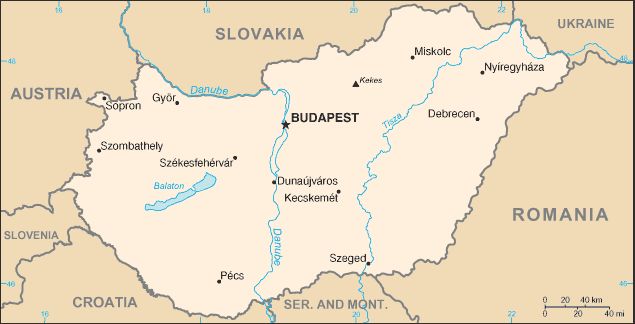
÷ ÷ ÷ ÷ ÷
⇐ Founded in Budapest, Hungary in 1990, they are known for their dynamic live concerts (often in unusual places such as around swimming pools or in the great outdoors) accompanied by video projections. Unfortunately, the band never title any of their albums or even their album tracks, which makes it difficult to refer to any of them individually. A general description would be long-flowing, cosmic space-rock jams with hypnotic atmospheres and superb percussion, with bits of trumpet and flute added on. The fusion-like atmosphere, the blend of Eastern and jazz influences and the constant interplay between burning guitar leads, synths and bass all make for an exhilarating listening experience.>¤ Korai Öröm ↓ 12/4 [2009]
This tripped-out Magyar outfit comprises a dozen or so musicians whose albums consist of improvised material recorded on stage and then remixed in the studio. ‘Their ability to fuse psychedelic rock, Eastern European folk influences and shamanist tradition is stunning. Their ingredients of this rich mixture are tribal percussion, pagan flutes, shamanist trance rock, ambient soundscapes, bizarre Hungarian voices harmonising with burning guitar leads; it’s all in there.» (Crohinga Well)
In the words of one of their founding members, Emil Biljarszki: «(our) CD’s are good but sterile, better to come to our concerts and let’s feel together that things, which happen from themselves and make us stay alive.»
•→ ‘Cinder’ ←
⇓ 2013/6 Deltoid


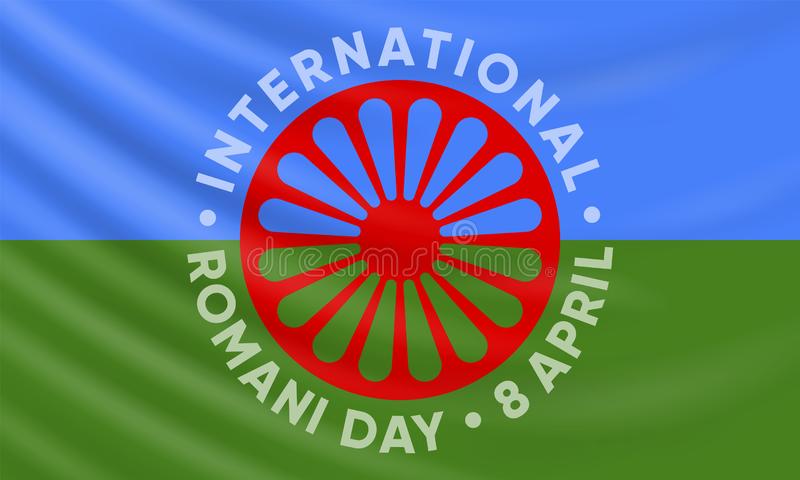
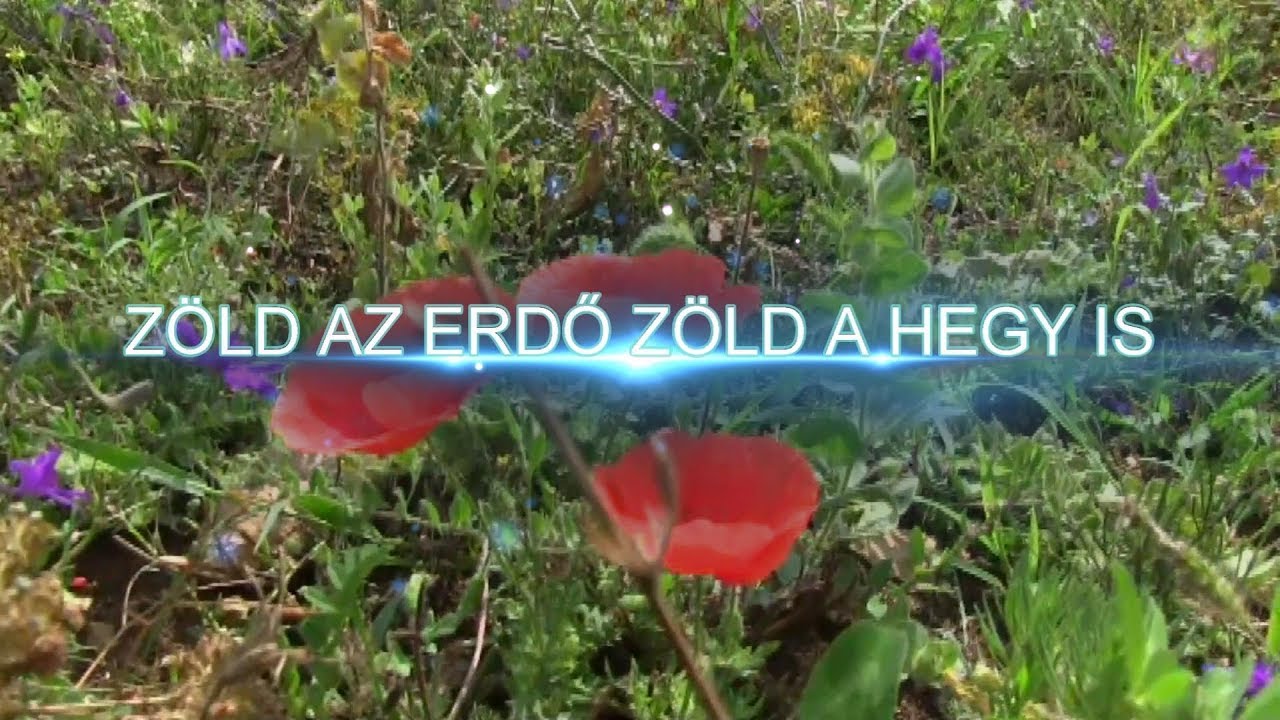
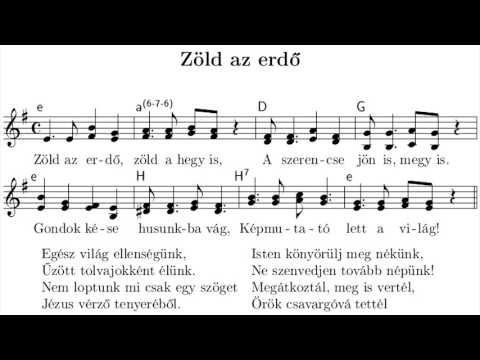

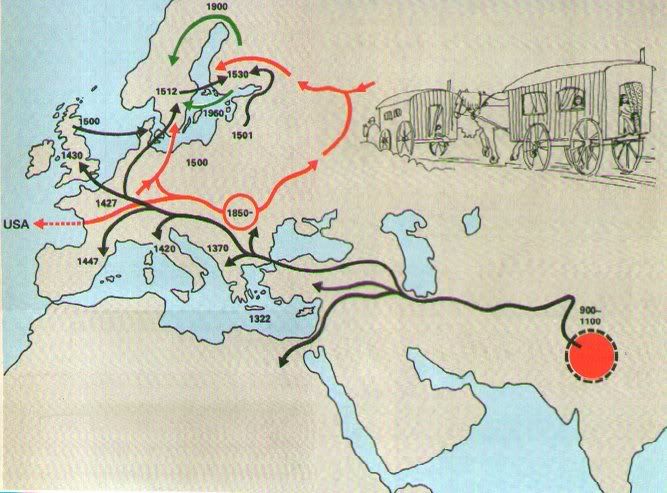




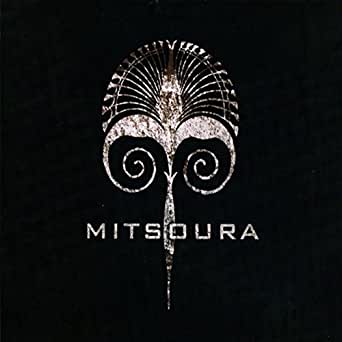
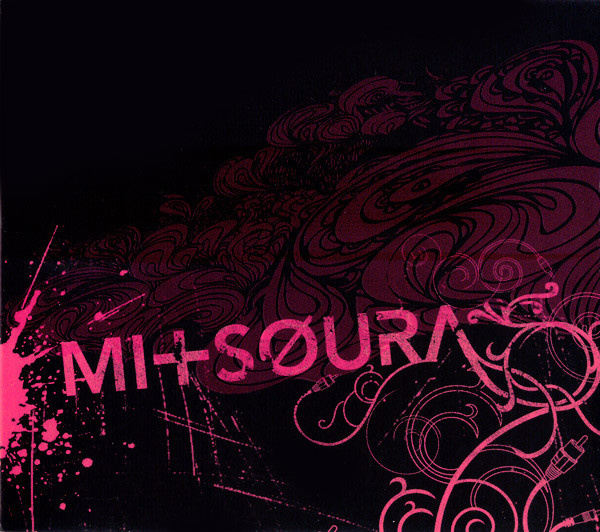







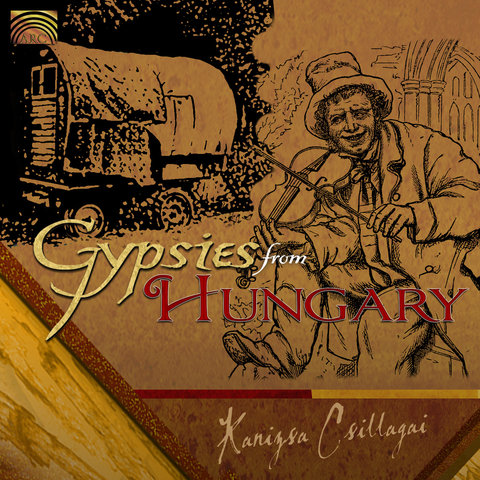

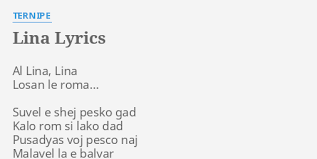
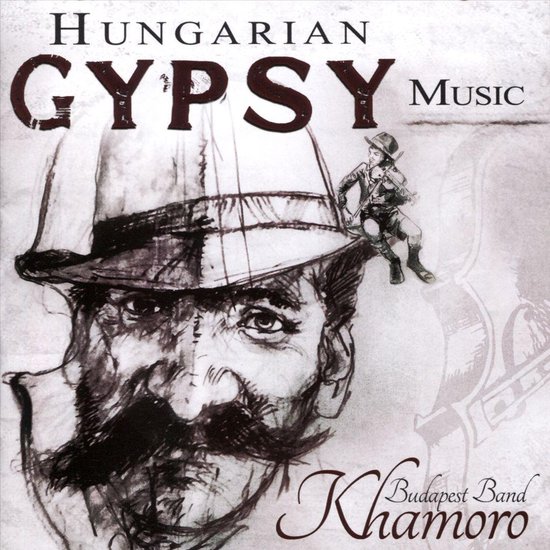
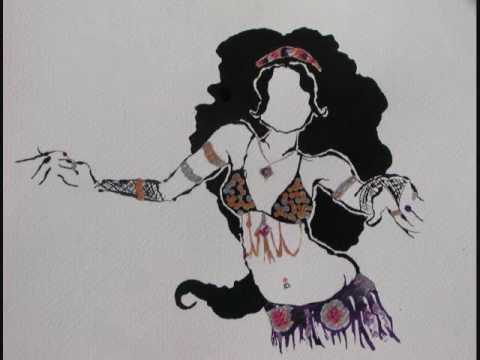
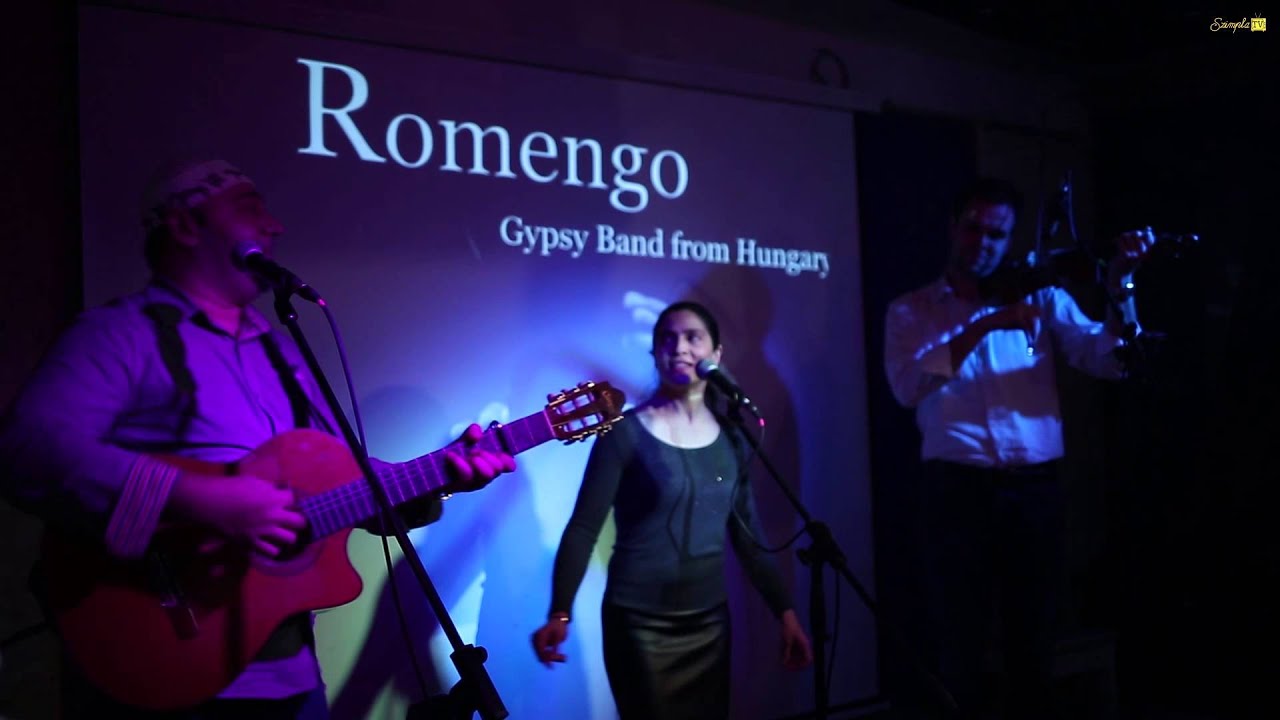
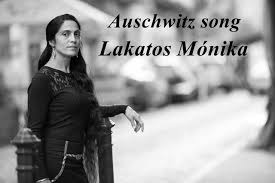
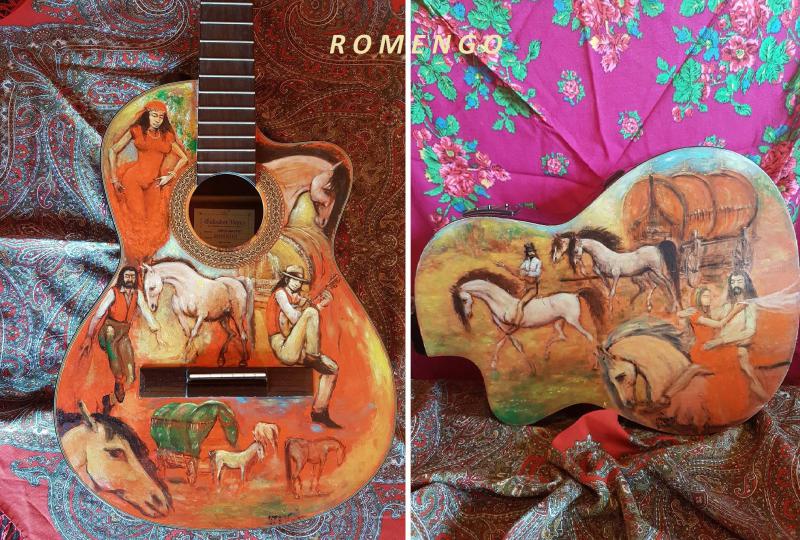

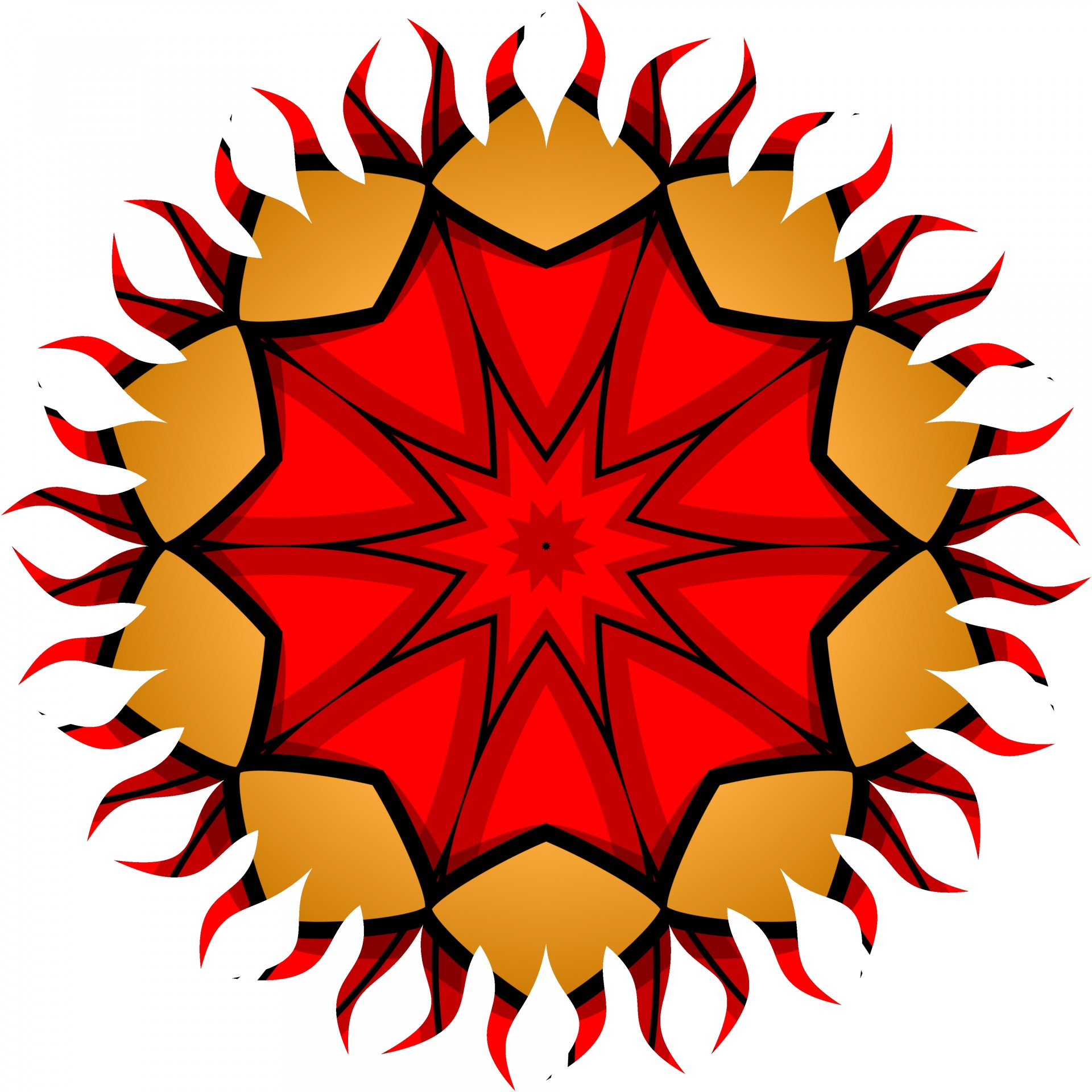
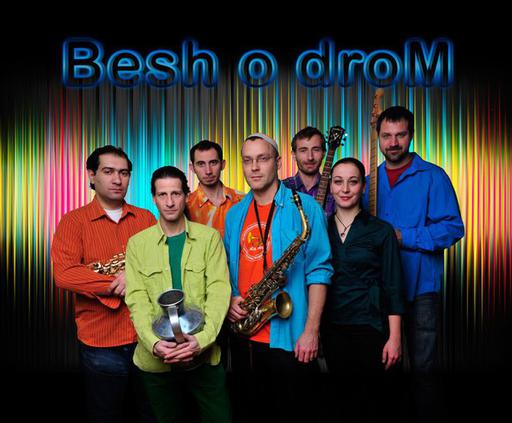
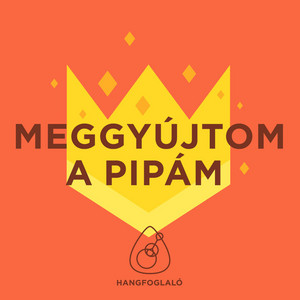


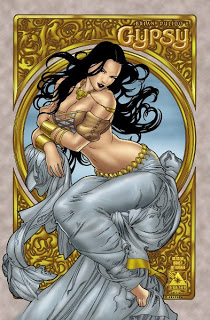
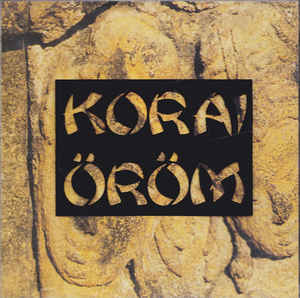


i don’t know how you can write so well, your articles are excellent.http://www.acertemail.com
i liked the stuff posted here. wishing you best of luck for your future.http://www.divulgaemail.com
Here’s hoping there’s a a ton more top-notch supplies coming!
De mis musicas preferidas. Que bonito. impresionante. enhorabuena. Muy buena documentación. Y muy completo. Me gusta todo. Mas, quiero mas. Besos